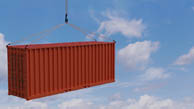Overview of Maritime Logistics (MLOF)
Maritime logistics, often abbreviated as MLOF, refers to the process of managing and coordinating the movement of goods and products through sea transportation. This field plays a crucial role in global trade, ensuring efficient delivery of goods from production to consumer. MLOF involves various processes, including loading, unloading, inventory management, and route optimization, all aimed at minimizing costs and maximizing efficiency.
Key Aspects of MLOF
1. Global Connectivity: MLOF enables businesses to connect distant markets, reducing the time and cost associated with long-distance transportation.
2. Efficient Inventory Management: By tracking inventory levels and optimizing stock, MLOF helps prevent stockouts and overstocking, ensuring smooth operations.
3. Route Optimization: MLOF uses advanced algorithms to determine the most cost-effective and time-efficient shipping routes.
4. Customs and Regulatory Compliance: MLOF ensures compliance with customs regulations, tariffs, and import/export laws, streamlining the process.
5. Technology Integration: Tools like shipping management systems, GPS tracking, and real-time monitoring enhance the effectiveness of MLOF operations.
Challenges in MLOF
Despite its advantages, MLOF faces challenges such as weather-related disruptions, port congestion, and customs delays. Addressing these issues requires a combination of advanced technology, reliable partner networks, and flexible operational strategies.
Future Trends in MLOF
The future of MLOF is expected to be shaped by technologies like artificial intelligence, blockchain, and electric vehicles. These innovations will further enhance efficiency, transparency, and sustainability in maritime logistics.
Conclusion
Maritime logistics is a vital component of global supply chain management, enabling efficient and cost-effective transportation of goods. By leveraging technology, optimizing processes, and addressing challenges, the future of MLOF looks promising and poised to drive global trade forward.
